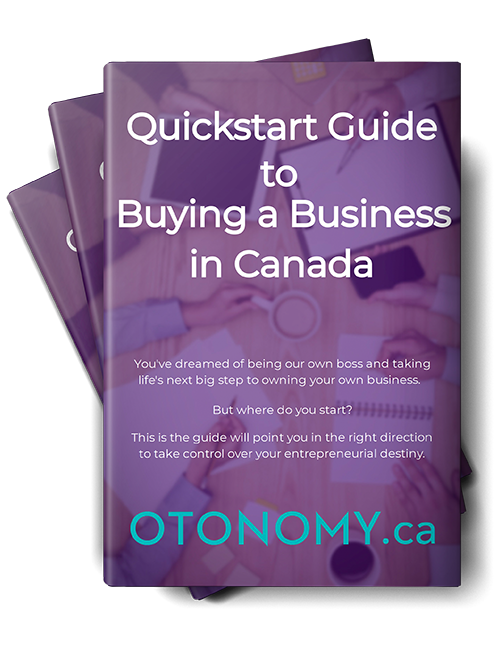In the following guide, we will discuss everything you need to know about selling your business. We’ll cover what factors go into the decision of selling a company, tax implications that may arise in certain situations, and more! For those who are looking for help with this decision, it can be hard to navigate through all of the available information on this topic alone. That’s why we have compiled some key points below as well as links to additional resources throughout our article that may be helpful for you when considering if selling your business is something worth exploring!
What could convince an entrepreneur to sell a small business? Countless reasons come into play when making this decision. Before you proceed, however, it is to your benefit to know precisely why you are selling your business. Consider this; knowing why you are selling is going to directly help how you position the sale.
Examples of factors that contribute to the decisions of selling include:
- Declining health
- Change in marital status
- Desire to liquidate assets / need money
- A change in direction
- Bored with life and looking for an adventure
- Inability to continue running the business successfully
- Ready for retirement
knowing why you are selling is going to directly help how you position the sale
Irrespective of your reason for selling, you must get the timing right. Otherwise, you might not get a good buyer or one who shows interest in buying your business.
Timing has a direct correlation with the purchase price. Additionally, the selling price is beholden to other factors such as past profits and performances.
How has the business performed previously? Is it profitable? Does its outlook justify the price you have set?
Are You Ready to Sell Your Business?

Are you ready to sell your small business? If you’re reading this then the answer is probably “yes”. Or at least, you’ve started to consider it but perhaps you’re unsure. If your honest answer to the factors below is in the affirmative, you may be ready to sell your business.
No Longer Excited to Run the Business
Inability to enjoy running the business is subject to a few issues. One of these is the lack of belief in your ability to overcome entrepreneurial challenges faced every day.
Similarly, it might be that the entrepreneurial challenges that you found exhilarating in the past no longer appeal to you.
In certain cases, administrative duties might replace the entrepreneurial risks. Are you a business owner who finds administrative tasks boring? You might need to sell it then.
Lack of Growth
Secondly, a business that shows no current signs of growth may be worth selling. There is always hope for a company that continually grows year over year.
However, a non-growing business does not necessarily mean it is on its deathbed. In many cases, it may simply require the skills of a new owner.
Therefore, examine whether the business has reached such a stage. Examine yourself too. If this proves to be the case, then you should look at placing the business for sale.
It’s easy to know if you’re plateauing in your business. First, you no longer arrive at work with a bounce in your step. You’re also starting to lose interest and become less motivated as the days go by – even for learning something new!
Factors responsible for this turn of events are quite diverse. They include flawed business plans. An outdated plan takes the joy out of running your business.
Declining Profits
There is nothing more disheartening than declining profits. It’s tough to pinpoint what is happening, hard to make changes and even harder when trying to put a positive spin on things.
One cause could be imperfect pricing leading to losses, which eventually discourage you from running the business properly.
A less-than-ideal pricing strategy revolves around setting low prices only without fully understanding your value proposition. This never ends well, especially if your prices are not the lowest in your niche and your quality of service does not compensate for your higher prices.
A low pricing strategy is akin to building a house on sand. The foundation is quite shaky and the entire strategy only produces short-term benefits.
Again, however, in the hands of a new owner, the new pricing strategy can turn a failing company into a profitable one.
Unable to see why someone would want your business
A small business owner must prepare the business for sale. Doing this requires putting the company in good shape to attract the best buyers fast. Especially if you are looking to sell your business quickly.
Mostly, buyers find companies with the following qualities quite attractive to buy:
- History of profitability
- Solid balance sheet and income
- Lean processes
- Stellar customer base
- Proper planning for future growth
Preparing your business for buyers also reassures them that it’s viable even in your absence. Many businesses are unable to survive without the original owner’s constant presence and input which buyers are well aware of and one of the reasons many small businesses go unsold.
Canadian buyers find such businesses unattractive. Therefore, train the management and employees to adhere to the laid down procedures and systems.
As previously mentioned, however, many motivations go into a buyers decision making processes.
Just because a business is struggling today, does not make the business unattractive to the right buyer who has the skills to reform the business.
In fact, many buyers are looking for a failing business to turn around.
Take a moment to read this article to further understand the motivations of today’s buyers.
When is the right time to Sell the Business?

Many owners have asked when the right time is to sell their business, and we think there are two great options. One option would be when you’re ready to retire and want to spend more quality time with your family or pursuing other interests in life. The second option is if owning a small company isn’t for you anymore.
Technically, you own the business, so you have the right to do whatever you want.
However, you can get it all wrong with poor timing. As initially stated, timing is everything when planning to sell.
As you’ll learn below, you should be careful with the timing along with other factors as well.
When Profits Keep Dropping
You should consider selling your business if you notice a sharp and sustained drop in profits and performance.
Reduced profits and performances tend to drain you of the motivation and energy required to run the business.
Extreme burnout can also demotivate a business owner. Burnout is common in business owners who build their firms from scratch.
A decline in profits may force you to reduce your asking price, which can incur further losses. Currently, Canada faces uncertain times courtesy of COVID-19, which creates an unpredictable future for businesses.
Many articles may say that this is not the right time to sell. If your profits or sales are down, you should wait until the business rebounds so you can maximize your asking price. This is great advice. Plan your business exit early and implement changes to your operations and strategies which will ideally create great demand for your business and demand top dollar from buyers.
What we think you should consider, however, and only you can answer this, is to determine what your tolerance is for running a sagging company. A company that is not profitable will have fewer buyers and demand a smaller price tag. It will however attract buyers who can see how their effort can turn these numbers around.
Invest in proper business valuation before embarking on this journey. The valuation provides a better picture of the viability of selling the business now or holding on a bit.
Performance Hasn’t Increased Sufficiently in 3-5 Years
How much has performance varied over the last 3-5 years? This piece of information could make your business appear viable to a potential buyer.
Since it’s impossible to put the business up for sale on a whim, you will need this information. Instead, you should plan for this.
If performance has been steady, this is a good sign. However, if it hasn’t improved in the last few years even after you have made changes and your business might not be as sustainable as you think. You may want to consider selling now before things get worse!
Ideally, you want to make sure that profitability and high performance are consistent and continue beyond two years. 1-2 years of profitability may not be enough to attract top dollar.
Therefore, focus on the endgame instead of allowing short-term gains to distract or lull you into a false sense of optimism and security.
When Performance and Profits Increase Constantly
It’s also the right time to sell small businesses that are on a period of sustained profitability and performance.
A growing business attracts prospective buyers much faster. Why is that the case? Naturally, astute buyers find them a sure bet in terms of future market success.
Profits are a great sign that your business is desirable. However, keep reading for tips to maximize your asking price and ensure you’re delivering on what most buyers are looking for (spoiler alert: it’s not always about the money).
You No Longer Enjoy Running the Business
Are you finding it a bit more tedious running the business? Have you stopped having fun running your business?
In this case, you should consider getting a proper valuation done and begin to set the wheels in motion to sell. There are many things you can do early to increase company valuation which may take plenty of work and time before listing your business and getting the returns you are looking for.
Most business owners find entrepreneurial challenges fun and enjoyable. Solving these challenges ignites their entrepreneurial fire and motivations.
However, with time, the business can undergo a transition that leaves the owner performing more administrative tasks.
Such tasks can take the joy out of running the business. When this happens, you should open your heart and mind to the likelihood of putting it up for sale.
You Lack the Range of Skills Required to Run the Business
At times, the business grows beyond your control and then becomes much bigger than you ever imagined or planned.
At such moments, you should ask if you have the skills needed to run the business. Are you even interested in acquiring skills that you do not currently have?
If you don’t have the time or the desire to learn this expertise, then selling your small business may be a better option. Otherwise, it may eventually start to die and thus, make the business harder to sell.
With the right skills, you can take the business to the next level. If this isn’t possible, you would be justified in selling it to a more resourceful owner.
The skills needed to grow your small business may be different from the ones needed to maintain it.
You need to know this to make an informed decision that suits your needs and personality type.
Should You Use a Broker to Sell the Business?

You have the option of either using a broker or selling the business on your own. A broker is a professional advisor with experience in selling Canadian small businesses.
Typically, there are a few pros and cons with these options. First, you save money by going it alone. However, the broker gives you the expert advice you may need.
Nevertheless, there’s more to the option that you choose than these two obvious benefits, as you’re about to learn below.
You could suffer huge losses if you sell it alone without any outside help. That primarily happens when you take your focus off the day-to-day running of the business.
It’s difficult to focus equally on running the business successfully and selling it. That’s because you might have already tuned out from managing the business.
Moreover, the inability to sell the small business fast could cause further losses by making you unable to identify or take advantage of some crucial opportunities.
It’s worth mentioning that no two brokers are the same. Consequently, you must carry out due diligence on each broker before settling on the best.
As you do this, remember to ask each broker for a detailed marketing strategy. The marketing strategy is important for:
- Advertising the business
- Soliciting buyers
- Creating awareness
While considering brokers, don’t forget to ask them for past profiles or projects. Each profile should have an accompanying list of the pros and cons of the business that was up for sale.
Additionally, it’s essential to request from brokers a list of their successes and failures. A good broker has more wins than defeats naturally.
At some point, you will have a chance to meet with each broker one-on-one. Pay close attention to the types and quality of questions each they ask you.
Some of them just want you to agree to their demands and sign up on Day 1. Avoid falling into their trap of agreeing with their demands too fast.
Good brokers learn as much as possible about the business first. They value the time taken to understand the business better, as this enables them to get the best deal for you.
A broker acts as an intermediary, too. You can use such a professional as a sounding board to evaluate the merits and demerits of certain actions.
Nevertheless, some cases call for a combination of the broker’s input and your Do-It-Yourself (DIY) approach.
If you decide to go with a broker, retain some of the decision-making. The broker shouldn’t make all the decisions alone. Instead, both of you should work together for the good of all.
It would be wise to consider the following before deciding whether it’s better to go it alone or hire a broker:
- Do you have a budget for hiring the broker?
- Will you lose more control by hiring a broker to sell the business?
- Are you ready to sign whatever contract the broker offers you?
- Would you be willing to accept the low price that a broker presents?
- Are you the broker’s only current client?
Regardless of whether you use an intermediary such as a broker or commercial real estate agent, or decide to sell the business which you know better than anyone on your own, one common feedback from many small business owners is that you need to play an active role in the marketing of your business. It is very common that as the business owner, through your own connections or marketing efforts, you will bring potential buyers to the brokers for further negotiation support.
When you’re ready, be sure to have your broker list your business on Otonomy.ca to further your marketing reach.
Five Tax Concerns a Canadian Entrepreneur Should Know before Selling the Business

Canada has a cache of tax laws and considerations worth learning about to avoid mistakes that might create problems between owners and authorities. As always, it is important to consult with a tax professional before making any decisions.
These tax considerations depend on your choice of the selling strategy. Typically, a business seller has three options, which are:
Sale of shares – This is often preferred by sellers as it can lend to a more advantageous way to calculate capital gains. While a share sale may result in a lower selling price than an asset sale of the same business, many factors are considered.
Asset sale – In an asset sale, the seller sells a company’s individual business assets instead of the whole company. The buyer will buy specific things like equipment or trade names.
Hybrid sale – This can be a complex matter, but it is possible to bridge the tax effects of selling and buying if needed. In an over-simplification, it is a way for the seller to sell the shares of the company, then sell the assets to the same individual which they can reorganize at a later date.
Hybrid sale employs both the sale of shares and assets and effectively balances tax costs and risks.
Below are the five tax considerations Canadian entrepreneurs contemplating selling their businesses need to understand:
Capital Gains Tax
The Canadian laws state that you are eligible for a capital gains deduction if you dispose of or sell a small business.
Naturally, this only applies to those who realize taxable capital gains from selling their businesses.
The taxable rate of capital gains is 50% in Canada. If you sell your investments because they are worth more than what you paid for them, you will need to pay taxes on the extra 50%. The amount of tax you pay will depend on how much money you make and how much money is coming from other sources.
Lifetime Capital Gains Exemption (LCGE)
Again, the law says that you’re eligible for a lifetime capital gains exemption, otherwise known as LCGE, on net gains or income you get after selling a small business.
LGCE simply means that you’re spared a considerable portion from paying taxes on the profits you made from selling the business. For further detail on Canada’s LCGE, check out this article from Toronto’s Kalfa Law.
Capital Cost Allowance
You should also consider capital cost allowance (CCA) when selling the business. CCA mostly comes into effect when talking of depreciable assets.
Depreciable assets wear out over time or become obsolete. Therefore, talk with your tax advisor about this while selling that business.
Taxable Income
In Canada, the first $800,000 that you earn as a profit from selling your business is tax-free. You could sell the business for over this amount without paying any tax.
This often happens when you work closely and strategically with family trusts and holding companies.
As fun as it is talking about taxes… let’s move on.
Tips for Preparing the Business for Sale

It is said that spectacular achievement is always proceeded by unspectacular preparation.
– R.H.Schuller
Here are some valuable suggestions to help you get closer to that spectacular achievement.
Evaluate the Business
As previously stated, it takes much preparation to sell small businesses anywhere in Canada. A successful deal is the product of hours of sleepless nights and intense preparations.
Proper preparation involves a few essentials. First, assess the business properly. Next, record all aspects of its operations. Consolidate the paperwork and keep the offices presentable.
Business assessment is different from valuation. Under assessment, the focus is on analyzing how the business works.
When assessing it, you should examine what you do well and be honest with yourself on what would need improving.
Good knowledge of your suppliers – those who ensure you never run out of materials or stock – is a critical aspect of the assessment as well.
After that, you also need to compute your annual sales. While at it, don’t forget to identify the products that outperform others in terms of sales.
Make sure you are not the critical piece of the puzzle
Next is to share your operations. How many people in your business know how it operates? Could other people operate the business smoothly in your absence? Do you have a strong management team?
This detail is critical to the successful sale of the entire business. Some buyers walk away once they realize that the business can’t operate without the founder or original owner.
On most occasions, the buyer doesn’t want to retain the seller. Therefore, train your staff to increase the chances of finding a buyer quickly. That being said, offering your consulting services post-sale or a period of transitional training is an excellent way to keep buyers interested in purchasing your business.
Offering your consulting services post-sale or a period of transitional training is an excellent way to keep buyers interested in purchasing your business.
Consolidating All Paperwork
Sales often collapse due to the absence of proper paperwork. It’s impossible to find buyers who take you at your word. They tend to believe the records rather than your words.
Therefore, start keeping your records in order 2-5 years ahead of the sale. You should develop a habit of keeping proper business records from Day 1.
All financial statements, records, and accounting must be in order. At the minimum, the paperwork for the past year must be ready. Buyers will simply not wait for this work to be provided and the potential sale will fail.
Enhancing the Business’s Physical Appearance
There’s nothing wrong with ensuring that the business premises look nice. Often, prospective buyers see the building/office before everything else.
First impressions matter too. For this reason, apply a fresh coat of paint on those walls that look old. Repair the squeaky doors too. Take care of that broken tap or sink in the washroom.
These repairs don’t cost a fortune but could prove too costly, especially if the terrible state of the premises convinces buyers to take a hike.
For a further breakdown of solid recommendations when preparing for your sale, check out this article on the Otonomy.ca resource site: 5 Tips You Want To Know Before Selling Your Small Business.
How Much is Your Business Worth?

This guide would not be complete if we did not touch upon setting a realistic valuation. The keyword here being ‘realistic’.
What’s the value of your business? How much is it worth? You can’t ignore these questions if you want to present a specific amount to the buyer.
Don’t think about approaching potential buyers before you know the value of the business. An accurate valuation is a huge treasure in such instances. Going in with an unfounded and potentially unrealistic valuation will quickly kill any opportunity of finding the right buyer.
However, you should never wait until you’re ready to sell the business to know its value or worth. Be ready with these figures even if you have no intention of selling the business.
How much was your business worth a couple of years ago? What is it worth in 2021? These two questions show prospective buyers whether the business has grown or stagnated!
You can calculate the value of your business with this information:
- History of the business since inception
- Information on employees
- Legal and commercial details
- Information on the market
Remember that valuation isn’t an end. Instead, it’s a never-ending process! It incorporates different yet simple procedures that determine a business’s worth.
Setting a valuation can be a complex procedure with many considerations. Be wary of websites offering online calculators. They often incorporate basic rule-of-thumb, or back of the napkin calculations which only get you there part of the way. Speak to a Chartered Business Valuator (https://cbvinstitute.com/) if you need help looking for professional advice.
Five Skills Needed to Sell Businesses at the Best Price

You will need a few crucial skills to help you sell your small business. Without these skills, you would struggle to negotiate with the broker or potential buyer.
The skills are all about negotiating until you get the best deal or price for your business. After all, you spent energy, time, and money building your business.
Planning
As stated earlier, planning is everything when negotiating with buyers. Here, you must set the minimum outcome that you can accept.
You should have acceptable or ideal outcomes that you would wish to get. Above all, have a fallback plan in case the negotiations don’t proceed according to your expectations.
It may seem like an obvious thing to state, but do yourself a favour and make a list early for what you want to accomplish with the sale of your business. Is it money? Quality of life? Less work? What are you willing to trade to get any one of those items?
Put together a roadmap of what you want to accomplish and when. As a successful business owner, you are more than likely familiar with this activity and now is not the time to stop this activity!
A little planning goes a long way.
Communicating
Secondly, you have to be an excellent communicator. It’s to your benefit to know how to express your ideas and thoughts verbally.
You should never show up for negotiations without clear agendas or goals. More importantly, present them calmly and concisely.
Selling your business is going to have a very profound effect on you and it is best to be prepared. Especially when you are communicating with potential buyers.
Problem-Solving
Strive to be as much of a problem-solver as possible. Yes, the goal is to get the best deal for yourself by solving the problems affecting you.
However, you will not lose much by solving the other party’s problems too. Successful negotiations are about developing mutually beneficial solutions.
Closing the Deal
The ability to close a deal can put you on an edge over everyone else. Therefore, know how to identify the signs showing that the deal is almost reaching the desired end.
Typically, these signs include:
- Reduced energy from the other parties in their counter-arguments
- Tired body language
- Convergence on positions taken by both sides
Once you notice these signs, you should introduce your closing arguments, write the decisions down, and make quick follow-ups on the commitments presented.
Preparing Alternative Outcomes
Lastly, you should be ready with Plan B and/or C. In short, do not go into negotiations with only one plan.
If you go in with a backup plan, you can use this as a source for re-negotiation. The goal is to keep the conversation going to reach agreements over disagreements.
If you are unable to agree, you have a choice. You can bring in a third-party mediator to help you and the buyer reach an agreement, or you can withdraw from negotiations.
If there is no further room for compromise, don’t feel that you need to keep negotiating. It is okay to walk away from the deal if you are not getting what you want out of it.
Preparing for the inevitable due diligence
It can be unnerving to have potential buyers comb through the details of your business as you feel you are being scrutinized for everything you do. This can also take a substantial period of time. A little preparation on your part will make this process easier for the buyer, for you, and the transition of ownership.
Buyer’s due diligence will explore your company’s operations, your financial statements and the industry in which you operate. There are many potential areas where buyers may find weaknesses that could become deal breakers for them; this is why preparation is paramount to success with due diligence.
You are anticipating the examination of your financials but you can also expect buyers to speak with existing customers, your suppliers and employees (if this is structured into the deal).
The more you can pave the way for the buyers by anticipating their needs, the more you can control the conversation and the light your business is cast in.
Conclusion
You’ve done the hard work of building your small business. Now you are at a point where it may be time to sell. The decision to sell is not an easy one with what can feel like an endless list of things to consider. However, it’s not as complicated as you may think.
Ensure you have the right professionals in your corner and you will be fine.
Some say the biggest challenge is the mental toll of letting go. Just remember that you’ve built something great and that the right buyers are out there wanting to take over your reigns.
When you’re ready to connect with these future business owners, market your listing on Otonomy.ca. It’s still the easiest, most affordable way to connect your business with potential buyers.




